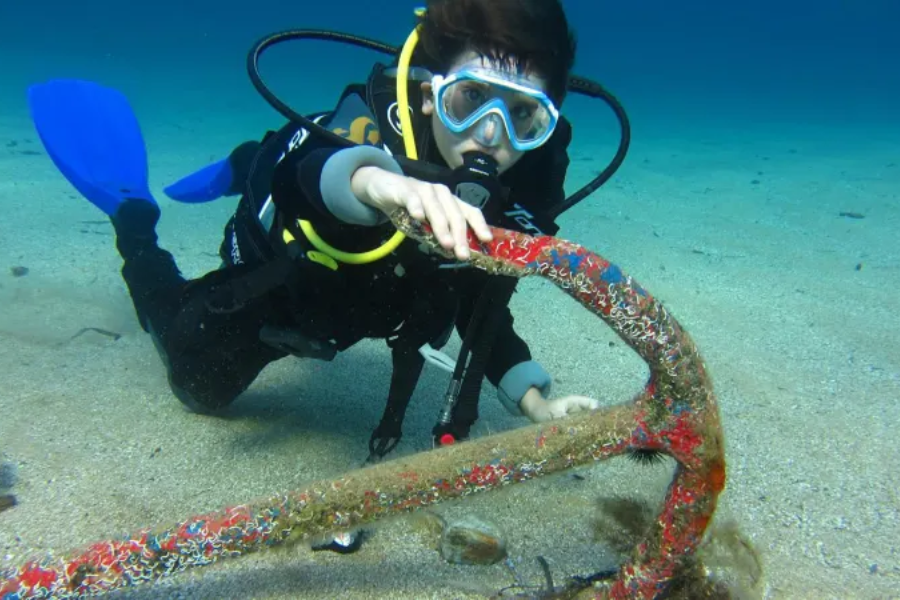The Thrill of Diving: A Beginner’s Guide to Safe and Fun Underwater Adventures
Table of Contents
- Introduction to Scuba Diving
- Essential Gear You Need
- Basic Safety Tips
- Best Dive Sites Around the World
- Physical and Mental Preparation
- Resources and Courses for Further Learning
Introduction to Scuba Diving
Diving offers a gateway to an entirely new world below the ocean surface. There are many wonders waiting to be discovered in the undersea world, from colorful coral reefs to ancient shipwrecks. Whether you are exploring the colorful corals of the Great Barrier Reef or experiencing the Cayman Islands scuba diving sites, diving can be an incredibly rewarding activity that connects you with nature and offers a sense of adventure.
Scuba diving in the Cayman Islands offers some of the most vibrant underwater ecosystems in the Caribbean, with crystal-clear waters teeming with marine life. Divers can explore famous sites like the vibrant coral reefs of Stingray City and the breathtaking walls of Bloody Bay Wall. With year-round warm temperatures and excellent visibility, it’s a diver’s paradise perfect for both beginners and seasoned adventurers.
But before taking the plunge, it’s essential to understand what scuba diving entails and how to prepare for it. Scuba diving involves swimming underwater using a self-contained underwater breathing apparatus (scuba), which allows you to breathe comfortably while exploring the depths of the ocean. This guide covers all the basics to get you started and keep you safe underwater, ensuring your dive experiences are both enjoyable and memorable.
Essential Gear You Need
One of the most important aspects of scuba diving is having the right gear. This includes:
- Mask and Snorkel: Essential for clear vision and breathing on the surface. A well-fitting mask ensures a clear view, while a snorkel allows you to breathe while face down in the water.
- Wetsuit or Dry Suit: Keeps you warm and protected from the elements. The type of suit you need depends on the water temperature of your dive location; wetsuits are typically used in warmer waters, while dry suits are ideal for colder conditions.
- Buoyancy Control Device (BCD): Helps you maintain neutral buoyancy underwater. A BCD allows you to control your buoyancy and hover effortlessly in the water, making your dive more comfortable and enjoyable.
- Regulator and Air Tank: Supplies oxygen and regulates your airflow. The regulator delivers air from your tank to your mouth when you inhale, and it is crucial for safe and efficient breathing underwater.
- Fins: Aid in swimming with minimal effort. Fins provide the propulsion you need to move through the water smoothly and efficiently, reducing the strain on your legs and conserving energy.
- Dive Computer: Monitors your depth, time, and decompression limits. A dive computer helps you track vital information during your dive, ensuring you stay within safe limits and avoid decompression sickness.
Investing in quality gear enhances your diving experience. It ensures your safety. Properly maintained equipment is less likely to fail and will give you peace of mind while exploring the underwater world.
Basic Safety Tips
Diving is exhilarating, but it also comes with risks. To stay safe, always:
- Dive with a buddy: Having a dive buddy means you can assist each other in case of an emergency, share the experience, and enhance overall safety.
- Check your gear before each dive: Inspect your equipment thoroughly to ensure everything functions correctly. Test your regulator, check your air supply, and make sure your BCD is in good condition.
- Stay within your skill level: As a beginner, stick to dive sites that match your certification level and experience. Gradually progress to more challenging dives as you gain confidence and skills.
- Keep an eye on your air supply: Monitor your air levels regularly and plan your dive to ensure you have enough air to return to the surface safely.
- Respect marine life and the environment: Avoid touching or disturbing marine creatures and their habitats. Practice sustainable diving to protect delicate underwater ecosystems.
Following these basic safety tips can make a significant difference in preventing accidents underwater. Being prepared and aware of your surroundings contributes to a safe and enjoyable diving experience.
Best Dive Sites Around the World
From the Great Barrier Reef in Australia to the Blue Hole in Belize, some dive sites are world-renowned for their beauty and biodiversity. These iconic locations attract divers from all over the globe, offering unique underwater landscapes and diverse marine life.
However, lesser-known gems can also provide unforgettable experiences. For example, the Yucatan Peninsula in Mexico has cenotes that provide crystal-clear freshwater diving, and the Raja Ampat archipelago in Indonesia is home to some of the world’s greatest coral reefs.
Exploring different dive sites allows you to experience various marine environments and discover new species.
Physical and Mental Preparation
Diving requires a good fitness level and the ability to stay calm under pressure. Regular exercise and mental conditioning can enhance your diving capabilities. If you engage in cardio, strength, and flexibility workouts to improve your overall health and endurance, diving may be less physically demanding.
Mental preparation is equally important. You may improve your breath control, lower your stress level, and sharpen your attention by engaging in yoga and meditation practices. These skills are valuable underwater, where staying calm and composed is crucial.
Learn about effective techniques for both physical and mental preparation. Making time for your health and well-being guarantees that you are prepared for the joys and challenges of scuba diving.
Resources and Courses for Further Learning
Numerous resources and courses are available for those looking to enhance their diving skills. Enroll in a certified program and continue your underwater education to become a more proficient diver. There is always something new to learn about the world of scuba diving thanks to organizations like PADI and NAUI, which provide a variety of courses for beginners to experts.
Online forums, diving magazines, and instructional videos can also provide valuable insights and tips. Joining a local diving club or community can offer opportunities to connect with experienced divers, share experiences, and participate in group dives.
Maintaining your diving skills and confidence will allow you to explore the underwater environment in a safe and responsible manner. You may do this by staying up to date on the newest methods and best practices and by pursuing more education.






